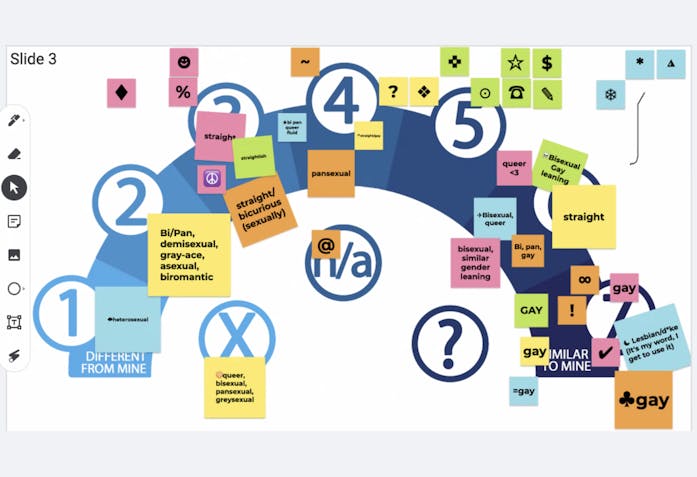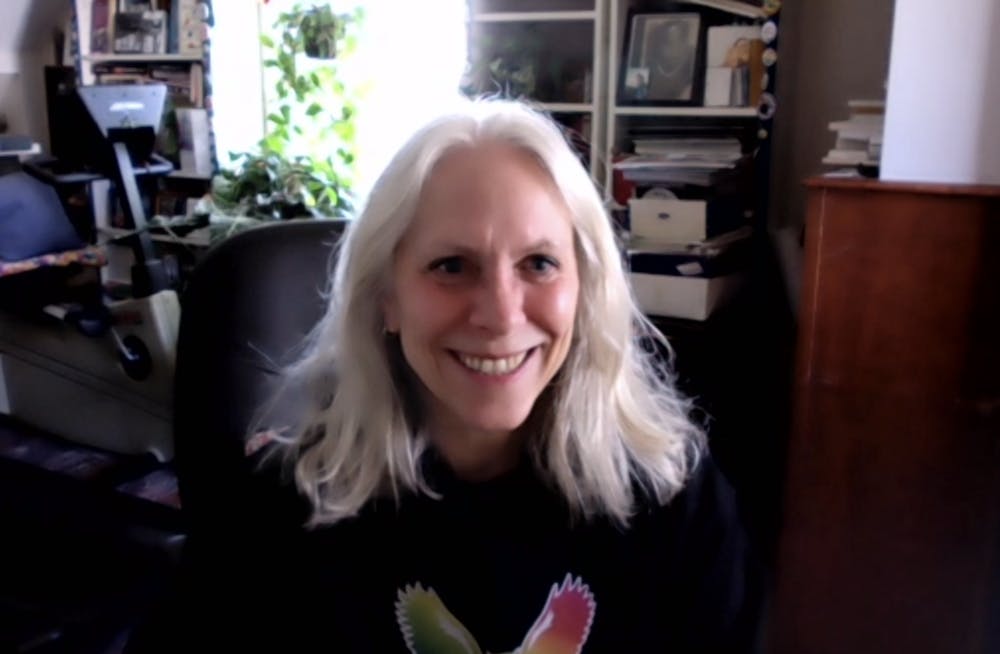Robyn Ochs, bisexual+ speaker, author and activist, spoke virtually March 24 at 12 p.m. to present “Beyond Binaries: Identity and Sexuality.” The second installment in a two-part series, “Beyond Binaries” invited participants to further explore self-identity through a series of interactive surveys and discussions.
The event was hosted by the Ohio University LGBT Center in recognition of both Bisexual+ Health Awareness Month and Women's History Month.
Ochs, who has worked with the OU LGBT Center since its first years of formal operation in the early 2000s, began advocating for LGBTQ+ rights decades ago.
“It started off as self-defense,” Ochs said. “I came out as bisexual 44 years ago, into a world where there was little information and virtually no community. And so I ended up being one of the people who has tried to build that.”
Through the work of activists and educators like Ochs, the U.S. has made progress toward acceptance and equality for LGBTQ+ individuals over the years. The Equality Act, which would provide protection for LGBTQ+ people in areas like housing and employment, recently passed in the House and will now be voted on by the Senate.
Additionally, more people are openly identifying as members of the LGBTQ+ community. A recent Gallup study found that one in six Gen Z adults identify as LGBTQ+.
“It makes me feel joyful,” Ochs said. “There's a cultural straightjacket that is put on people to force us to conform to cultural norms and the data shows that each succeeding generation has loosened that straightjacket a little bit more…I think we are in a moment now where we are beginning to think in more complex ways, and we are beginning to manifest the amazing diversity that exists among us, but that had previously been stifled.”
During the “Beyond Binaries” presentation, Ochs focused on bisexual+ identity. The bisexual+ identification is used by people who feel “the potential to be attracted, romantically and or sexually, to people of more than one gender, not necessarily at the same time, in the same way or to the same degree,” Ochs said.
Micah McCarey, director of the OU LGBT Center, said being bisexual is not a label, but more of an umbrella term.
“Robyn (helped) explain that to a lot of folks who need to either hear it for personally validating reasons or folks who need to hear it to undo a lot of the limited modes of understanding identity that we didn't ask to be grown up with, but were socialized with nonetheless,” McCarey said.
Ochs also emphasized that labels and identity can be fluid, which many participants felt affirmed by. When the program ended, a number of people thanked Ochs in the Microsoft Teams chat and stated that the presentation helped them feel affirmed in their identities.
McCarey has attended a number of Ochs’ presentations and recognized Ochs’ ability to foster a comfortable and accepting environment for program attendees. He recalled that in the past, at in-person events, “a half dozen or a dozen” audience members would always stay after the presentations to thank Ochs for leaving them with meaningful messages or giving them the courage to come out.
“I thought that would be lost, but the same thing actually happened in the virtual setting, maybe not always staying on with your camera or something, but sending a chat message afterward or emailing Robyn,” McCarey said.
Despite the virtual setting of the event, “Beyond Binaries” was still interactive. Participants took part in a number of anonymous surveys and polls.

Megan Knicely, a freshman studying actuarial science, appreciated the participatory nature of the program. Although she attended “Beyond Binaries” for a project in her diversity class, she gained a greater understanding of the flexibility of labels and identity.
“Labels do not include everything about a person and it is completely understandable that your identity changes,” Knicely said in a message.
Ochs hoped that presentation attendees would take away two things: identity is a journey and it is “absolutely fine” to not have all of the answers yet.
“It’s just like giving people permission to be their complex selves,” Ochs said. “That’s what I try to do in my work, is just help people give themselves permission, because it's not about me giving permission because that's irrelevant, right? It's about me helping people give themselves permission to be authentic, to be complex (and) to be open to their own identity journey.”






